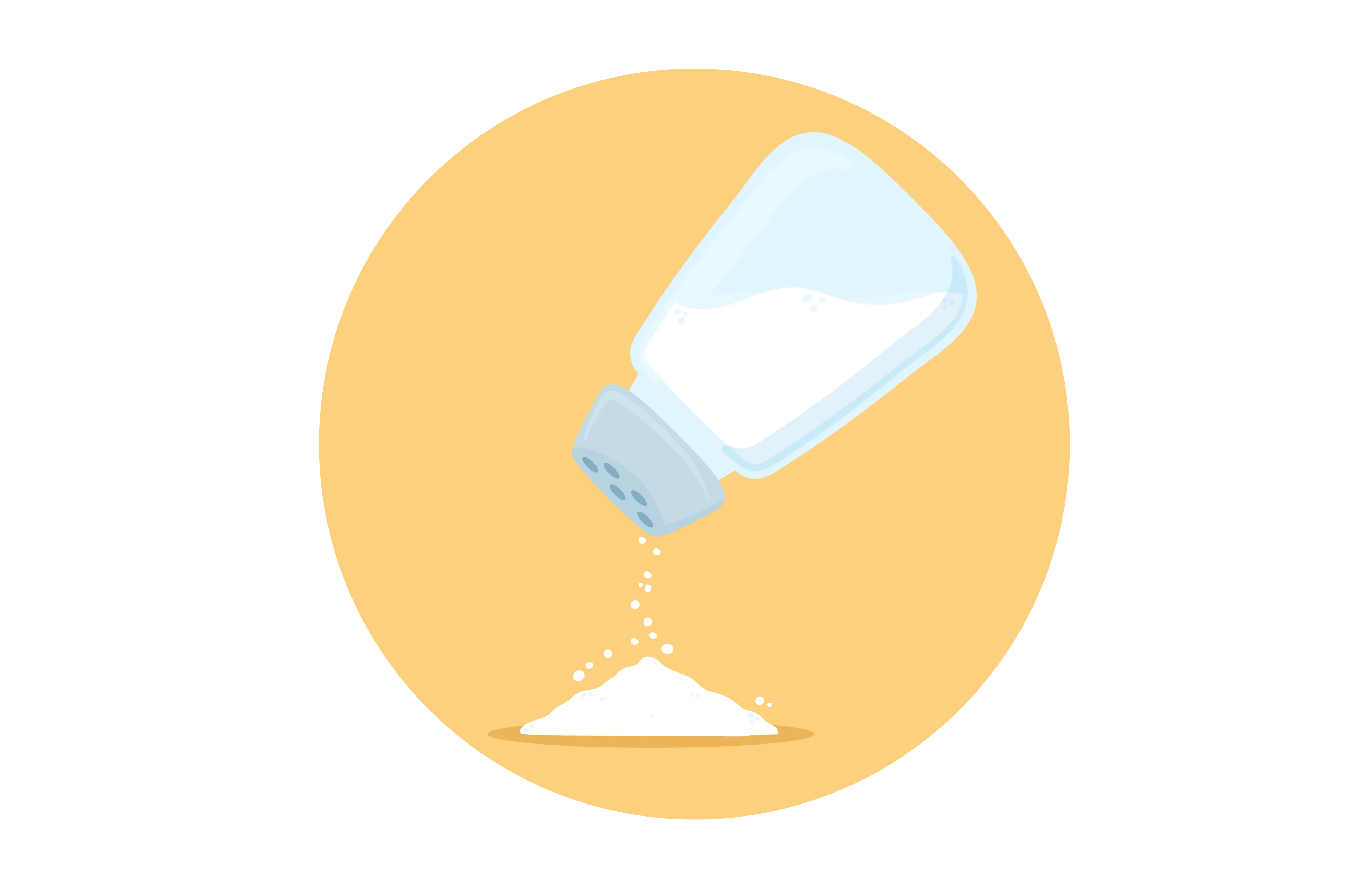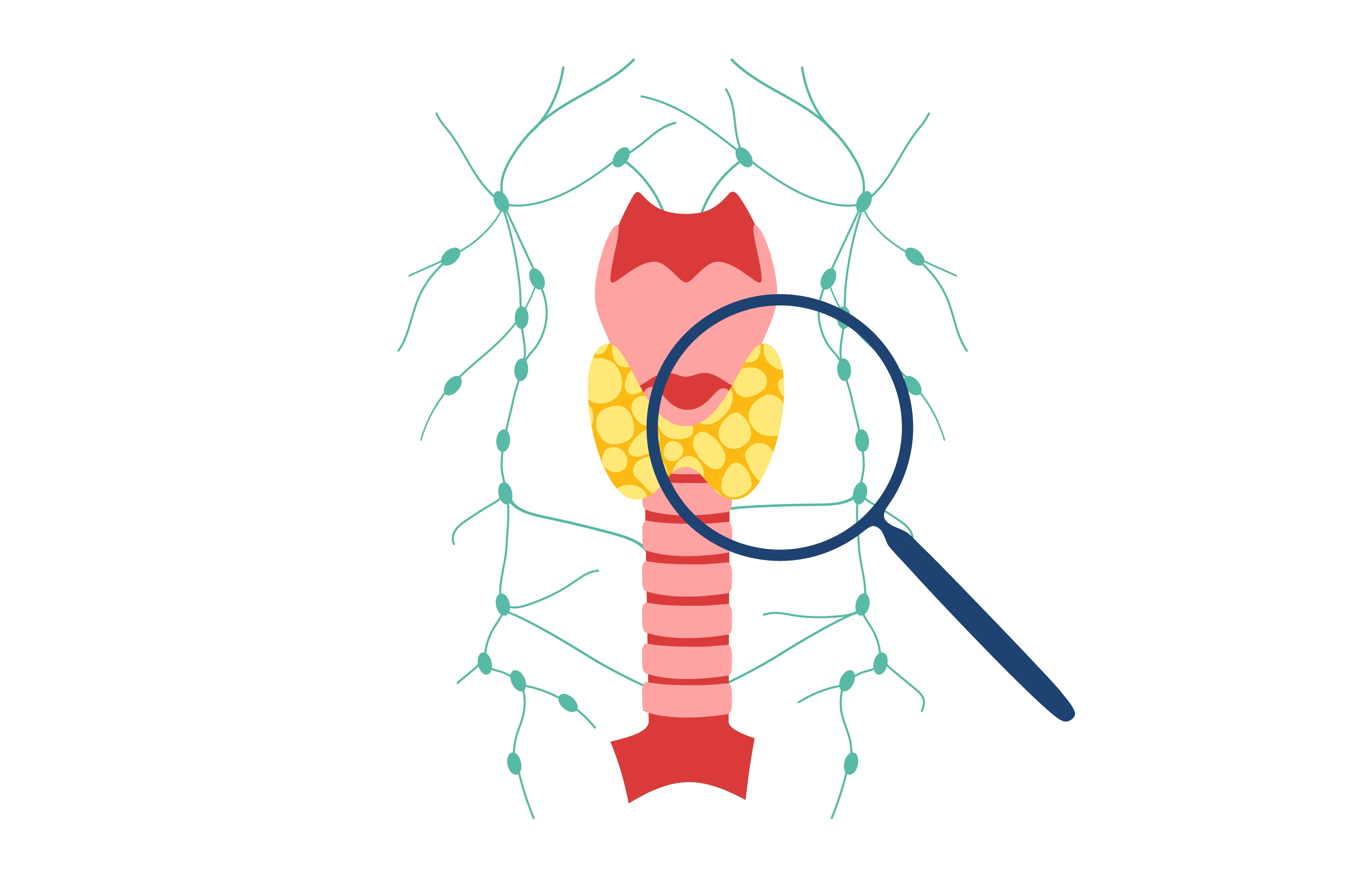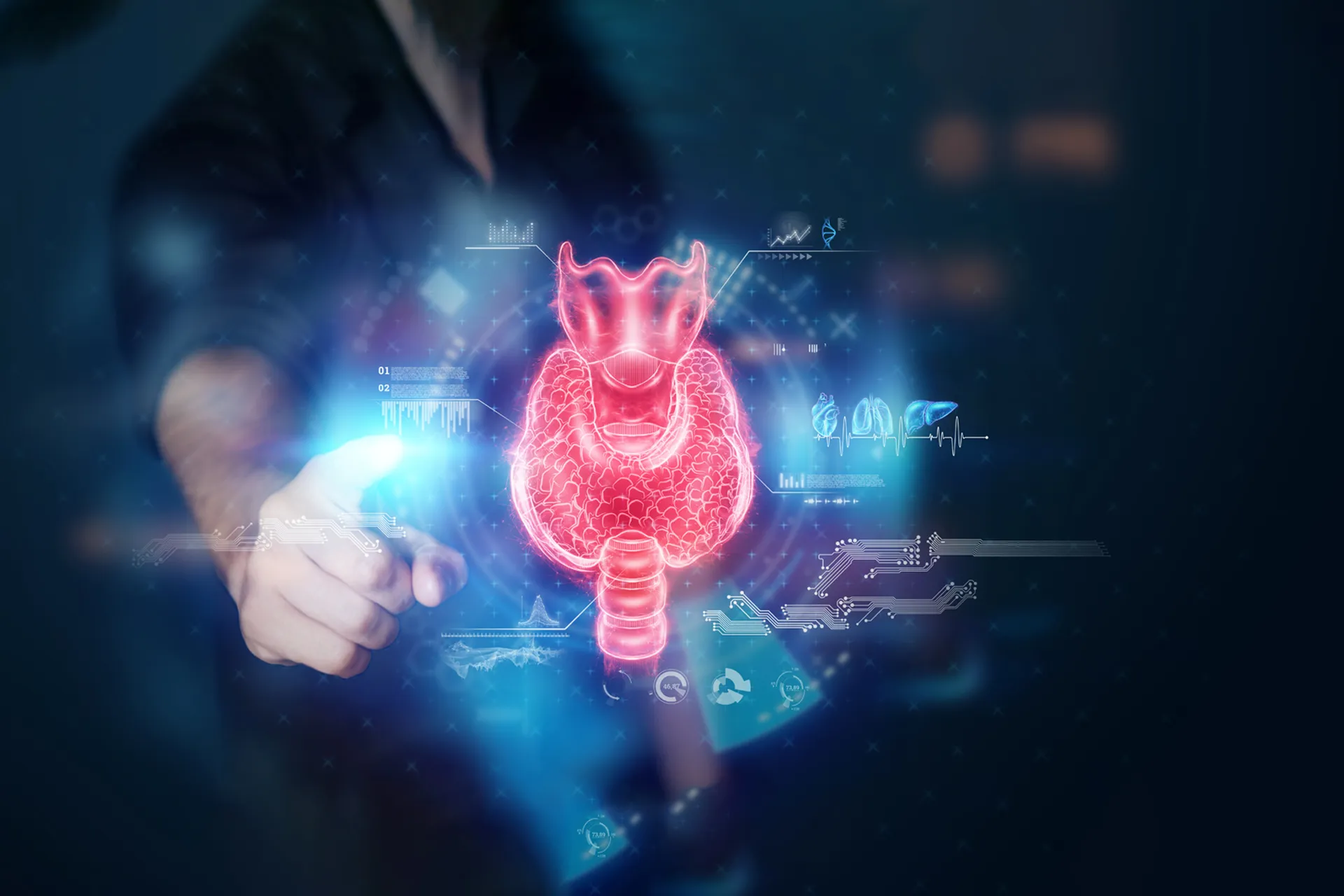Thyroid | 4 min read
Guide To Thyroid Symptoms: How Do Iodine Levels Affect Your Thyroid Gland?
Medically reviewed by
Table of Content
Key Takeaways
- Thyroid symptoms and your iodine levels are linked
- Excess iodine symptoms usually indicate hyperthyroidism
- In case of low iodine, hypothyroidism is usually diagnosed
The thyroid gland is a small butterfly-shaped organ situated in front of the neck. It secretes hormones that control many essential functions of your body. However, if your thyroid gland isn’t functioning properly, it can disturb your metabolism. Thyroid symptoms can occur due to excess secretion of thyroid hormones may result in hyperthyroidism and also due to insufficient thyroid hormones called hypothyroidism.
Here Are Some of the Most Common Thyroid Symptoms.
Below are a few thyroid symptoms:-
- Rapid loss or gain in weight
- Extreme fatigue
- Inability to sleep properly
- Irregular menstruation cycle
- Vision problems
- Weakness in muscles
Iodine is an important mineral required for the proper functioning of the thyroid gland [2]. When there is an imbalance of iodine in your diet, you may suffer from an underactive or overactive thyroid. Iodine plays an important role in converting thyroid stimulating hormone to T3 and T4 hormones. Without this conversion, your thyroid gland does not function properly.
You can find approximately 70-80% of the iodine in the thyroid gland itself. Read on to understand how iodine and hypothyroidism are linked and what happens when there is excess or less iodine in your body.
Additional read: Signs of Hyperthyroidism and Hypothyroidism: A Guide to the Two Thyroid Conditions
What Is the Normal Iodine Level and What Are Iodine-Rich Foods?
The recommended iodine intake for your body from the age of 14 years is 150 micrograms. This value is same for both males and females. However, during pregnancy, the recommended amount rises to 220 micrograms. In case you are breastfeeding, your body will need 290 micrograms of iodine.
Consuming iodine-rich foods is the best way to increase your iodine intake. Here are some foods with high values of iodine.
- Egg
- Cheddar cheese
- Iodized salt
- Seaweed
- Seafoods
How Are Iodine and Thyroid Disease Connected?
Iodine deficiency causes an increased production of thyroid stimulating hormones in your body. If TSH increases, your thyroid gland may need to extract more iodine from your blood. Thus, it is essential to manage the iodine requirements in your body. If your iodine intake reduces below 10-20 micrograms on a daily basis, it may result in hypothyroidism. You may also experience a condition called goiter, wherein there will be a visible swelling seen around your neck.
Consuming excess iodine is not very common. This happens only when you consume iodine supplements to treat a deficiency of the mineral. Though it is rare, too much iodine intake can lead to hyperthyroidism where your gland produces excess hormones [3]. Excess iodine can cause irritation in your digestive tract as well. If you are living close to sea, you will be more prone to this due to the seafood and water that is high in iodine.

How Is Iodine Intake Connected with Excess Thyroid Symptoms?
Usually, excess iodine symptoms indicate hyperthyroidism. Here are a few symptoms of an overactive thyroid.
- Weight loss
- Inability to sleep properly
- Anxiety attacks
- Nervousness
- Vision problems
- Irregular menstruation
- Weakness in muscles
How Are Iodine and Hypothyroidism Linked?
Low iodine causes hypothyroidism. It can affect cognitive skills and other developmental problems in children. While goiter is one of the low iodine symptoms, here are the other symptoms of hypothyroidism.
- Rapid weight gain
- Constipation
- Hair loss
- Fatigue
- Skin turning dry
- Intolerance to cold
- Forgetfulness

How to Test Iodine Levels in Your Body?
To check iodine level, blood test is the most accurate procedure as it helps determine the exact iodine amounts. In some cases, doctors may recommend certain imaging tests. By adopting a diet rich in iodine or reducing how much you consume, you can manage iodine levels in your blood.
Additional read: 3 Crucial Thyroid Tests You Need to Know to Check Your Thyroid Hormone LevelsNow that you know how iodine can affect the functioning of your thyroid gland, do check your iodine levels regularly. Too much or too little iodine can hinder the functioning of the gland. Have a proper diet to balance your iodine levels. However, do consult your doctor before consuming any iodine supplement. For advice, book an online doctor consultation on Bajaj Finserv Health. Talk with specialists and clear your doubts on iodine intake. If required, go for blood tests and address all your thyroid symptoms at once.
References
- https://my.clevelandclinic.org/health/diseases/8541-thyroid-disease
- https://www.ncbi.nlm.nih.gov/pmc/articles/PMC3976240/
- https://pubmed.ncbi.nlm.nih.gov/30891786/
Disclaimer
Please note that this article is solely meant for informational purposes and Bajaj Finserv Health Limited (“BFHL”) does not shoulder any responsibility of the views/advice/information expressed/given by the writer/reviewer/originator. This article should not be considered as a substitute for any medical advice, diagnosis or treatment. Always consult with your trusted physician/qualified healthcare professional to evaluate your medical condition. The above article has been reviewed by a qualified doctor and BFHL is not responsible for any damages for any information or services provided by any third party.





